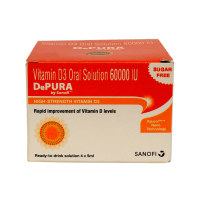NOTICE: unsafe with : Alcohol
USED FOR:
Hypertension
Chest pain (Angina)
COMPOSITION:
Amlodipine (10mg)
Therapeutic Uses:
cardiac

CAUTION

WEIGH RISKS VS BENEFITS
Dip 10mg Tablet may be unsafe to use during pregnancy.Animal studies have shown adverse effects on the foetus, however, there are limited human studies. The benefits from use in pregnant women may be acceptable despite the risk. Please consult your doctor.

Dip 10mg Tablet is probably safe to use during lactation. Limited human data suggests that the drug does not represent a significant risk to the baby.

Do not drive unless you are feeling well.Dip 10mg Tablet may cause side effects such as dizziness, headaches, nausea or tiredness, all of which could affect your ability to concentrate and drive.

SAFE
Dip 10mg Tablet is safe to use in patients with kidney disease. No dose adjustment of Dip 10mg Tablet is recommended.

CAUTION
Dip 10mg Tablet should be used with caution in patients with liver disease. Dose adjustment of Dip 10mg Tablet may be needed. Please consult your doctor.Dip 10mg Tablet is started at a lower dose in patients with liver disease and further increased slowly with careful monitoring.
Uses of Dip Tablet
Dip 10mg Tablet is used in the treatment of hypertension and chest pain (Angina).
How to use Dip Tablet
Take this medicine in the dose and duration as advised by your doctor. Swallow it as a whole. Do not chew, crush or break it. Dip 10mg Tablet may be taken with or without food, but it is better to take it at a fixed time.
How Dip Tablet works
Dip 10mg Tablet is a calcium channel blocker. It works by relaxing blood vessels which makes the heart more efficient at pumping blood throughout the body.
Common Fatigue, Ankle swelling, Sleepiness, Flushing (sense of warmth in the face, ears, neck and trunk), Headache, Nausea, Dizziness, Palpitations, Edema, Abdominal pain.
Expert advice for Dip Tablet
It is very common to have dizziness, lightheadedness, swelling ankles/feet, flushing, or a headache as a side effect. To lower your risk of dizziness and lightheadedness, get up slowly when rising from a sitting or lying position. Inform your doctor if your symptoms do not improve or if it worsens (for example, your blood pressure readings remain high or increase, chest pain continues or worsens). Inform your doctor immediately if any of these serious side effects occur: fast/irregular/pounding heartbeat, fainting. Use this medication regularly to get the most benefit from it. To help you remember, take it at the same time each day. It is important to continue taking this medication even if you feel well. If you miss a dose, take it as soon as you remember. If it is near the time for the next dose, skip the missed dose and resume your usual dosing schedule. Do not double the dose.
Q. What is Dip used for?
Dip is indicated for the treatment of high blood pressure (hypertension), angina pectoris (pain in the chest caused by blockages in the arteries leading to the heart) or chest pain classed as vasospastic angina pectoris (or Prinzmetal’s angina).
Q. Is Dip a calcium channel blocker and how does it works?
Dip is a calcium channel blocker. In patients with high blood pressure, it works by relaxing blood vessels, so that blood passes through them more easily. In patients with angina, it works by improving blood supply to the heart muscle, which then receives more oxygen, and hence, prevents chest pain. It does not provide immediate relief of chest pain from angina.
Q. Is Dip safe?
Dip is safe if used at prescribed doses for the prescribed duration as advised by your doctor.
Q. Can I take Dip at night?
Dip can be taken at night. You should take Dip at the same time each day with a glass of water.
Q. Can I take Dip and aspirin?
Dip can be taken with aspirin. No drug-drug interactions have been reported between the two. However, interactions can occur. Please consult your doctor before taking the two medicines together.
Q. Can I take Dip with sildenafil?
Both Dip and sildenafil cause a lowering the blood pressure. So, taking the two medicines together could be harmful. Please consult your doctor before taking them together.
Q. Is Dip a beta blocker?
Dip is not a beta blocker. It belongs to a group of medicines called calcium channel blockers.
Q. Is Dip safe for kidneys?
Dip is not known to damage kidneys. However, Dip can cause urinary disorders like difficulty in passing urine, increased the need to urinate at night, increased number of times of passing urine as an uncommon side effect.
Q. Is Dip a diuretic?
Dip is not a diuretic. It belongs to a group of medicines called calcium channel blockers.
Q. Is Dip a blood thinner?
Dip is not a blood thinner. It belongs to a group of medicines called calcium channel blockers.
Q. Is Dip a statin?
Dip is not a statin. It belongs to a group of medicines called calcium channel blockers.
Q. Is Dip an angiotensin converting enzyme (ACE) inhibitor?
Dip is not an angiotensin converting enzyme (ACE) inhibitor. It belongs to a group of medicines called calcium channel blockers.
Q. Does Dip cause tachycardia?
Dip can rarely cause changes in heart rate, which can be an increase (tachycardia) or a decrease in heart rate (bradycardia) or an irregular heart rate. Please consult your doctor if you experience any changes in your heart rate while taking Dip.
Q. Does Dip cause pedal edema (swelling of the ankles)?
Dip can cause pedal edema (swelling of the ankles). Please consult your doctor if you have pedal edema while taking Dip.
Q. Does Dip increase creatinine?
Dip has not been reported to increase creatinine levels. Please consult your doctor if you have increased creatinine levels while taking Dip as it requires proper diagnosis and management.
Q. Does Dip cause erectile dysfunction?
Erectile dysfunction is an uncommon side effect of Dip. Please consult your doctor if you experience erectile dysfunction when you are taking Dip.
Q. Does Dip cause bradycardia (decreased heart rate)?
Dip can rarely cause changes in heart rate, which can be an increase (tachycardia) or a decrease in heart rate (bradycardia) or an irregular heart rate. Please consult your doctor if you experience any changes in your heart rate while taking Dip.
Q. Does Dip cause weight gain?
Dip can cause changes in weight, it can either cause weight gain or weight loss. However, these changes are very rare. Please consult your doctor if you experience a change in weight while taking Dip.
Q. Does Dip cause joint pain (arthralgia)?
Dip can cause joint pain (arthralgia). Please consult your doctor if you experience excessive joint pains while taking Dip.
Q. Does Dip cause cough?
Dip can cause cough, but it is a very rare side effect. Please consult your doctor if you experience excessive coughing while taking Dip.
Q. Does Dip cause dry mouth?
Dip can cause dry mouth as an uncommon side effect. Please consult your doctor if you experience excessive dryness of mouth after taking Dip.
Q. Can I take Dip without food?
Dip can be taken before or after food and drinks. Dip should be taken same time each day with a glass of water. Do not take Dip with grapefruit juice.
Q. Can I take Dip with milk?
There are no specific recommendations on the use of Dip with milk. However, it can be taken before or after food and drinks.
Q. Can I take Dip with lisinopril?
Dip can be taken with lisinopril. No drug-drug interactions have been reported between the two. However, as both the medicines have a blood pressure lowering effect, interactions can occur. Please consult your doctor before taking the two medicines together.
Q. Can I take Dip with ibuprofen?
Dip can be taken with ibuprofen. No drug-drug interactions have been reported between the two. However, interactions may occur. Please consult your doctor before taking the two medicines together.
Q. Can I take Dip with metoprolol?
Dip and metoprolol both have a blood pressure lowering effect. So, taking both the medicines together can be harmful. Please consult your doctor before taking the two medicines together.
Q. Can I take Dip with losartan?
Dip and losartan both have a blood pressure lowering effect. So, taking both the medicines together can be harmful. Please consult your doctor before taking the two medicines together.
Q. Can I take Dip with ramipril?
Dip and ramipril both have a blood pressure lowering effect. So, taking both the medicines together can be harmful. Please consult your doctor before taking the two medicines together.
Q. Can I take Dip with simvastatin?
Dip can increase the levels of simvastatin, causing an increased tendency towards myopathy (muscle pain) and rhabdomyolysis (increased breakdown of muscle). The dose of simvastatin may need to be reduced when giving along with Dip . Please consult your doctor.
Q. Can I take Dip with atorvastatin?
Dip can be taken with atorvastatin. No drug-drug interactions have been reported between the two. However, interactions may occur as interactions have been reported between simvastatin (belongs to the same class). Please consult your doctor before taking the two medicines together.
Q. Can the use of Dip cause gout?
Dip does not cause gout. It may cause joint pains (arthralgia). Please consult your doctor in case you have any signs and symptoms of gout as you may need treatment for the same.


 Dip 10mg Tablet
Dip 10mg Tablet  Bookmark
Bookmark



















